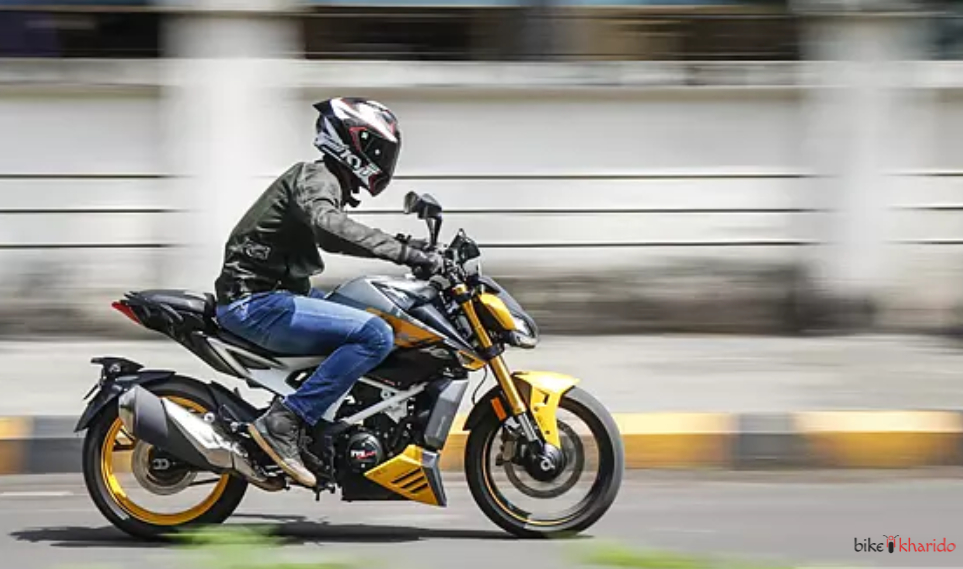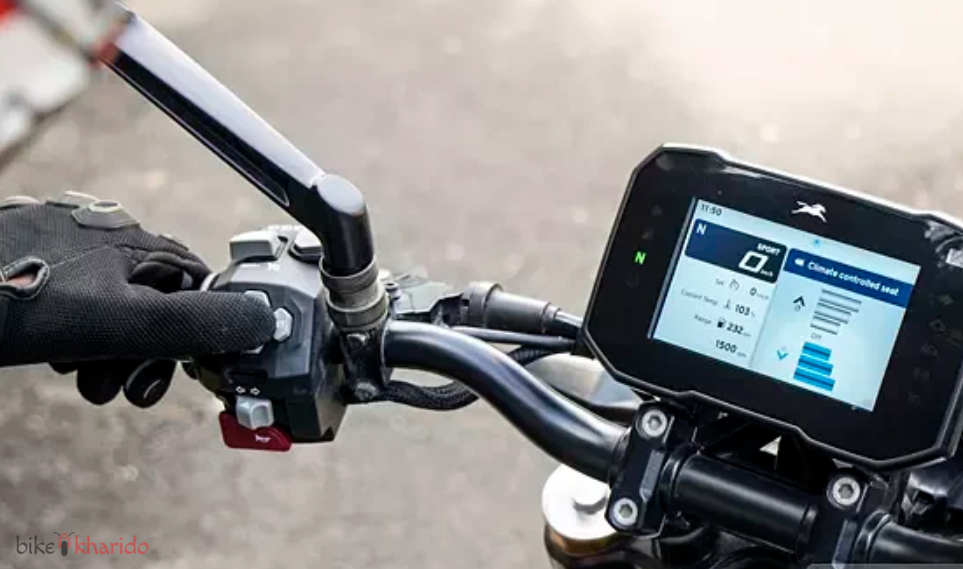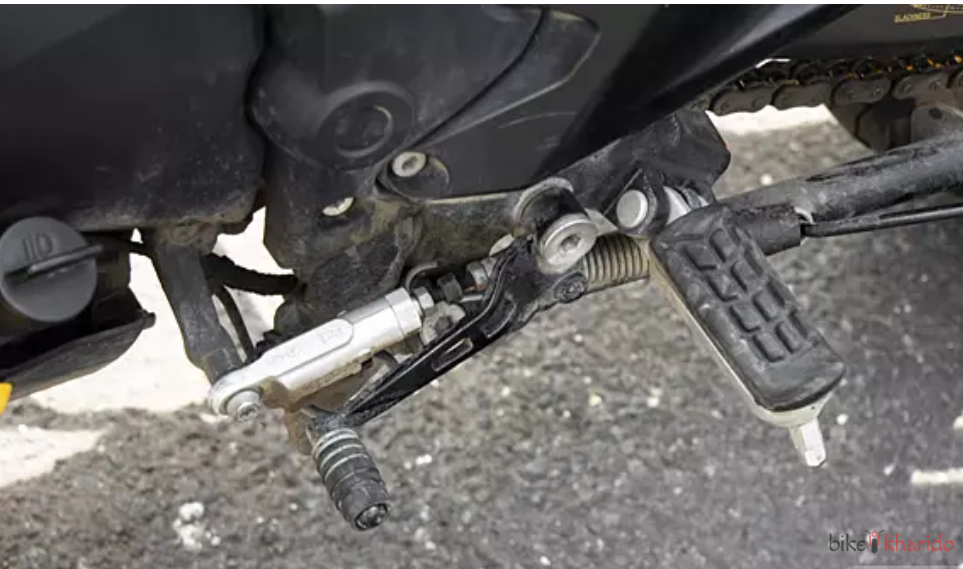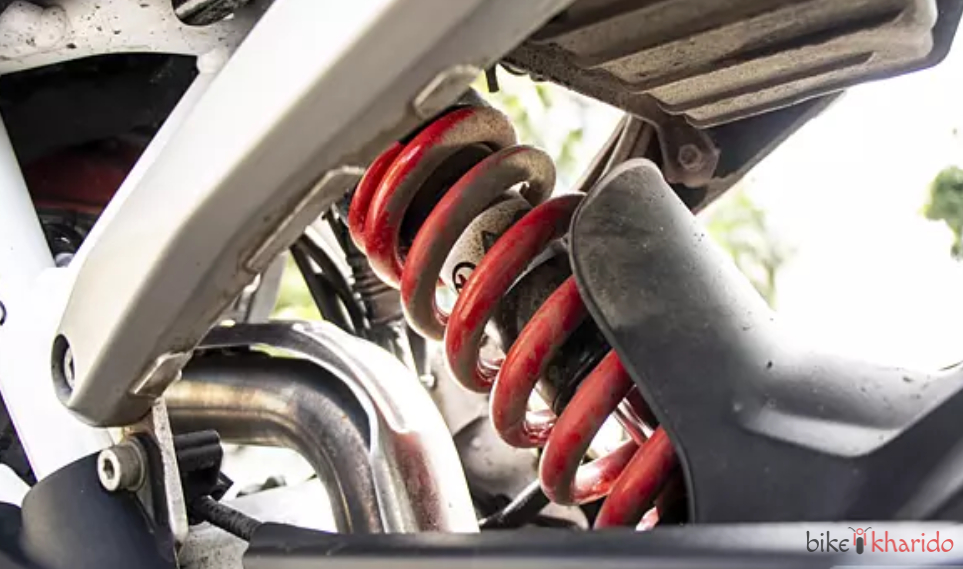A Commuter’s Experience with the Apache RTR 310

Riding Through Mumbai with the Apache RTR 310
The Apache RTR 310 has served as my daily mode of transportation for more than two months, during which I have subjected it to a variety of conditions and terrains that Mumbai presents. From maneuvering through congested traffic to traversing poorly maintained sections of NH48, and coping with roads that became impassable during the monsoon season, this motorcycle has endured a comprehensive range of challenges. Although lengthy traffic jams are not ideal, they have highlighted several noteworthy features of the motorcycle that merit discussion.
You may like it: Ola Electric Speeds Ahead with Early Release of Gen 3 Electric Scooters
Performance and Power Delivery
The 310cc engine, generating 38bhp, has significantly enhanced the speed of my commutes, if not their duration. Renowned for its robust low-end torque, I was particularly impressed by the bike’s mid-range power. In a city like Mumbai, characterized by one of the lowest average speeds, the Apache RTR 310 enables riders to navigate through traffic efficiently and maintain a competitive edge. The seamless acceleration and consistent power delivery facilitate easy navigation through the most congested streets.

Quickshifter and Ease of Use
One feature that I quickly came to value is the quickshifter. This innovation has made gear changes smoother and has reduced the need to frequently engage the clutch lever, thereby minimizing rider fatigue. In a bustling city like Mumbai, where riding can be taxing, the quickshifter significantly enhances the overall riding experience, making it far more pleasurable.
You may like it: Limited-Time Offer on Aprilia RS 457 Quickshifter
Agility and Handling
The Apache RTR 310’s agile handling is another commendable aspect. With its broad handlebars, I enjoyed excellent leverage, allowing me to maneuver effortlessly through tight spaces between cars and auto-rickshaws. The bike’s responsive characteristics instilled confidence, enabling me to navigate through traffic with relative ease.

Instrument Cluster and Technological Features
At first glance, the instrument cluster appeared somewhat overwhelming due to the extensive information presented. However, I gradually recognized the utility of certain features, such as the daily ride statistics that track kilometers traveled and time elapsed, which reset automatically each day. Additionally, I opted to install a tyre pressure monitoring system (TPMS), a standard feature on the Apache RTR 310, which negated the necessity for an external device, thereby simplifying the monitoring process.
You may like it: Triumph Daytona 660 Arrives in Showrooms Across India
Ride Quality and Comfort
Although the performance and features are commendable, there are aspects that did not meet my expectations. The rear suspension, particularly for a rider weighing 95kg, tends to be rather rigid. A softer rebound would enhance ride comfort, especially on uneven surfaces. Furthermore, the NVH (Noise, Vibration, Harshness) levels are not satisfactory; the engine becomes noticeably harsh and vibrates significantly beyond 6000rpm, which is felt through the handlebars, seat, and footpegs.

Aesthetic Appeal
The aesthetic design of the Apache RTR 310, especially the front section, has not resonated with me. Despite its vibrant yellow hue, the design fails to make a significant impression amidst the hectic traffic of Mumbai, and I believe it could have been more visually appealing.
You may like it: Kawasaki Ninja ZX-10R 2025 Model Arrives with New Features
Future Prospects
As winter approaches, I am eager to embark on some road trips. Although the Apache RTR 310 is not primarily designed as a touring motorcycle, like many riders in India, I often adapt any bike for touring purposes. I am keen to observe its performance on national highways, so please stay tuned for my forthcoming road trip insights with the RTR 310.
A Commuter’s Experience with the Apache RTR 310

Riding Through Mumbai with the Apache RTR 310
The Apache RTR 310 has served as my daily mode of transportation for more than two months, during which I have subjected it to a variety of conditions and terrains that Mumbai presents. From maneuvering through congested traffic to traversing poorly maintained sections of NH48, and coping with roads that became impassable during the monsoon season, this motorcycle has endured a comprehensive range of challenges. Although lengthy traffic jams are not ideal, they have highlighted several noteworthy features of the motorcycle that merit discussion.
You may like it: Ola Electric Speeds Ahead with Early Release of Gen 3 Electric Scooters
Performance and Power Delivery
The 310cc engine, generating 38bhp, has significantly enhanced the speed of my commutes, if not their duration. Renowned for its robust low-end torque, I was particularly impressed by the bike’s mid-range power. In a city like Mumbai, characterized by one of the lowest average speeds, the Apache RTR 310 enables riders to navigate through traffic efficiently and maintain a competitive edge. The seamless acceleration and consistent power delivery facilitate easy navigation through the most congested streets.

Quickshifter and Ease of Use
One feature that I quickly came to value is the quickshifter. This innovation has made gear changes smoother and has reduced the need to frequently engage the clutch lever, thereby minimizing rider fatigue. In a bustling city like Mumbai, where riding can be taxing, the quickshifter significantly enhances the overall riding experience, making it far more pleasurable.
You may like it: Limited-Time Offer on Aprilia RS 457 Quickshifter
Agility and Handling
The Apache RTR 310’s agile handling is another commendable aspect. With its broad handlebars, I enjoyed excellent leverage, allowing me to maneuver effortlessly through tight spaces between cars and auto-rickshaws. The bike’s responsive characteristics instilled confidence, enabling me to navigate through traffic with relative ease.

Instrument Cluster and Technological Features
At first glance, the instrument cluster appeared somewhat overwhelming due to the extensive information presented. However, I gradually recognized the utility of certain features, such as the daily ride statistics that track kilometers traveled and time elapsed, which reset automatically each day. Additionally, I opted to install a tyre pressure monitoring system (TPMS), a standard feature on the Apache RTR 310, which negated the necessity for an external device, thereby simplifying the monitoring process.
You may like it: Triumph Daytona 660 Arrives in Showrooms Across India
Ride Quality and Comfort
Although the performance and features are commendable, there are aspects that did not meet my expectations. The rear suspension, particularly for a rider weighing 95kg, tends to be rather rigid. A softer rebound would enhance ride comfort, especially on uneven surfaces. Furthermore, the NVH (Noise, Vibration, Harshness) levels are not satisfactory; the engine becomes noticeably harsh and vibrates significantly beyond 6000rpm, which is felt through the handlebars, seat, and footpegs.

Aesthetic Appeal
The aesthetic design of the Apache RTR 310, especially the front section, has not resonated with me. Despite its vibrant yellow hue, the design fails to make a significant impression amidst the hectic traffic of Mumbai, and I believe it could have been more visually appealing.
You may like it: Kawasaki Ninja ZX-10R 2025 Model Arrives with New Features
Future Prospects
As winter approaches, I am eager to embark on some road trips. Although the Apache RTR 310 is not primarily designed as a touring motorcycle, like many riders in India, I often adapt any bike for touring purposes. I am keen to observe its performance on national highways, so please stay tuned for my forthcoming road trip insights with the RTR 310.



